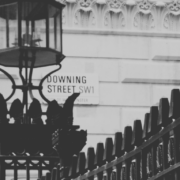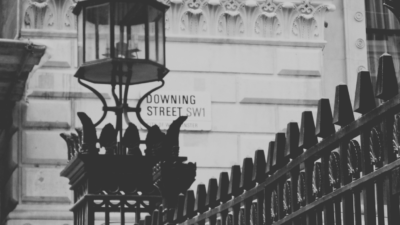In the Autumn Budget, very few impending tax hikes were revealed by the Chancellor Rishi Sunak – going against the grain of much of the speculation beforehand.
But there were some tax measures included which will have a direct impact on the property sector.
Maxim Cohen, founder and chief executive of UK Adviser, a digital franchise network for mortgage and finance professionals – looks at what was announced and how it could affect the sector.
New Residential Property Developer Tax to tackle the cladding crisis
The Chancellor announced a £5 billion fund to remove unsafe cladding from the highest-risk residential buildings, which will be paid for by the Residential Property Developer Tax (RPDT).
This measure will introduce a new 4% tax which will apply to the largest residential property developers on the profits they make on UK residential property development.
The most likely to be affected are companies or groups of companies undertaking UK residential property development with annual profits of more than £25 million.
As of 2019, 31 companies were hitting profits such as these, so the tax seems designed to protect the SME builders and developers who were concerned that such a tax could severely hamper their business.
However, given the seriousness and scale of the situation, calls will continue to be loud for the government go much quicker and bigger on resolving the cladding crisis.
According to the government, the tax will apply from April 1 2022 to profits arising from residential property development recognised in accounting periods ending on or after that date.
It says where a company’s accounting period straddles April 1 2022, the profits of the accounting period will be ‘time apportioned to determine amounts falling before and after the start date’.
Developers already paying corporation tax will have to pay the tax while social landlords will be exempt from the RPDT.
Other developments that will be exempt from the tax include student accommodation, a home or institution providing residential accommodation for children, and a home or other institution delivering residential accommodation with personal care for people in need of care.
Find out more about the planned changes here.
Capital Gains Tax changes
During the Budget announcement, many feared the Chancellor’s decision to raise Capital Gains Tax but there was no mention of a price hike.
Equally, some had expected more radical reform of the tax to tie it up with other taxes to form one overriding super-tax for property, which would be less complicated than the current system.
Instead, a new Capital Gains Tax deadline was revealed – and even then only in the small print after the Budget speech had taken place.
The 30-day tax return deadline has now been doubled to 60 days, allowing taxpayers to have more time to report and pay CGT.
For over a year those buying a home worth less than £500,000 did not have to pay any stamp duty tax during the stamp duty holiday.
This had a strong impact on the number of transactions in the property industry, yet there was no mention of this tax during Sunak’s announcement – while inheritance tax and council tax were also left off the menu.
While landlords may breathe a sigh of relief that they will face no further tax changes for now, after a number of years of bearing the brunt of measures introduced by successive Chancellors, there will be those who are disappointed that reform of the property tax system – which has long been called for – has been left on the shelf again for now.
National Insurance band rates increase
From April 2022, national insurance contributions will increase by 1.25% meaning British citizens who qualify will have to pay national insurance at a rate of 13.25%.
Although this is not a direct tax for property, it will impact the monthly incomes of homeowners and prospective homebuyers.
The reason for the increase in national insurance contributions is to deal with the social care crisis and to contribute to the NHS.
Prospective first-time buyers who are still paying off their student loans will be hit hardest because they already pay a higher rate of tax.
By claiming more workers’ incomes, these higher rates have the potential to make saving for a new property more difficult.
In contrast, as part of a “multi-year housing settlement” of approximately £24 billion, what Sunak describes as the largest cash investment in a decade, up to 180,000 affordable homes will be built on brownfield sites.
Although they did not form part of the announcement, schemes that will continue to run throughout 2022 such as the 95% mortgage scheme will also provide help for those hoping to join the property ladder.





















Comments